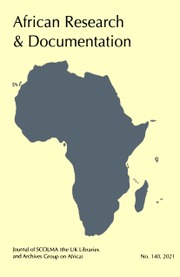Article contents
Ecological Constraints on Agricultural Development in Africa
Published online by Cambridge University Press: 25 April 2022
Extract
It has been commonly supposed that there are major factors inherent in tropical environments which make them uniquely problematic, and essentially inhospitable-to agricultural development. They, and especially their soils, are seen as intractable and fragile, and liable to break down irreversibly if man dares to meddle with the delicate, but vaguely conceived and tenuously defined, “ecological balance” (see Gourou, 1953; Stamp, 1953 a,b; Richards, 1952; 1970; Janzen, 1975; inter alia). The unarticulated corollory is that more temperate environments are,to a great extent robust and unproblematic. Both premises may be seriously questioned, and their conjunction is dubious in the extreme. In the first place, though it may be demonstrated with some plausibility that tropical environments have presented obstacles to productive agricultural development, it remains to be shown that these problems are solely the consequence of environmental characteristics, or whether perhaps the major factor is the lack of appropriate ingenuity, with technological inventiveness inhibited by the temperate blinkers of those responsible for technological research.
Information
- Type
- Research Article
- Information
- Copyright
- Copyright © International African Institute 1981
References
- 1
- Cited by

